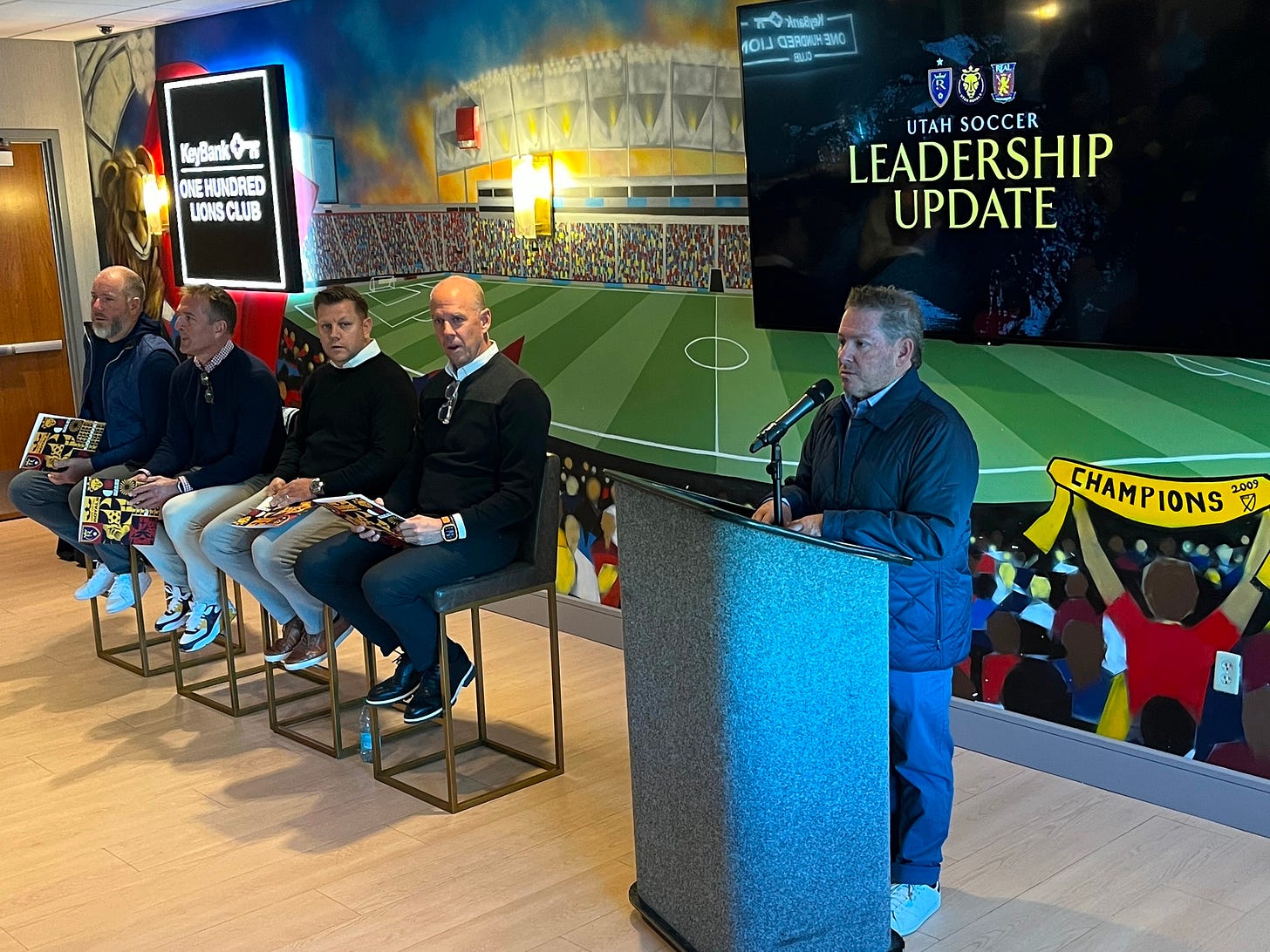Jason Kreis once built a championship contender as RSL head coach. Can he do it again as President of Soccer Ops?
The club promoted Kreis to a newly created role as president of soccer operations for both Real Salt Lake and Utah Royals FC, giving him autonomy over sporting decisions with both franchises.

Jason Kreis was the first player signing of Real Salt Lake’s MLS era, and he went on to become the first player-turned-coach to lead the club to its only MLS Cup title in 2009.
But after two years with New York City FC, a couple more with Orlando City, and time spent with the United States youth national system and Inter Miami’s second team, he and his wife Kim returned to Utah in December 2023 to take on a new role as director of club operations and special projects — a “return home” that he felt was not only necessary for his professional development, but his personal one.
“Salt Lake is where we raised our children. Salt Lake is our home,” he said. “We belong here.”
After two years of integrating various business and community initiatives within RSL and sister club Utah Royals FC of the NWSL, he’s moving back to soccer.
The club, under new parent company Miller Sports and Entertainment (MSE) announced Wednesday that Kreis has been promoted to President of Soccer Operations for both Real Salt Lake and the Utah Royals, a new position that will support and oversee both sporting structures and report directly to Larry H. Miller Company CEO Steve Starks and team ownership.
In referencing himself as an “emotional, passionate guy who says what he means,” Kreis acknowledged the support of the club, his wife Kimberly, and John Kimball — a longtime friend who will stay on as team president to oversee business operations with RSL and the Royals.
“I don’t like to talk, and I certainly don’t love to talk in a public setting,” he said.
But …
“I will approach every day with a positive, competitive collaborative attitude,” Kreis added. “I will put absolutely everything I have into this project. No one will work harder or longer than me.”
He acknowledged the club’s ethos of “winning through development,” and that other clubs around Major League Soccer will almost assuredly out-spend the small market franchise on the Wasatch Front.
To that end, Kreis wants RSL and Utah Royals FC to focus on three key elements of talent acquisition, development and bridging to support its championship aspirations:
Development
Recruitment
Culture
To that end, the Royals have already hired a new head of recruitment. RSL is also “in the final stages” of adding its own recruitment chief, Kreis said.
“It’s critical that everyone involved in our club, myself included, are very focused in trying to be better in our jobs,” he said. “We all need to be focused on developing, and we all need to come in here with a growth mindset. If you don’t have that growth mindset or the belief that you can be better, this might not be the club for you.”
Part of Kreis’ mandate will include developing a “really strong identity” for both the Royals and Real Salt Lake, Starks said.
“This isn’t about just trying to mash them all together,” said Starks, who serves as the Royals’ alternate governor in the NWSL in addition to his role with the Larry H. Miller Company and leading the Big League Utah effort to land an MLB expansion team in Utah’s capitol city. “It’s actually to strengthen their independence, and apply both practices across both clubs, resources across both clubs, health and performance across both clubs.
“If we’re going to do it for one, that’s a competitive advantage that we can do it for two.”
While Kreis will report to Starks, the long-time Salt Lake-area businessman said he’ll have the autonomy to guide his department within both clubs as necessary.
“The Miller family had a head coach that’s in the hall of fame and several general managers at the Jazz that were given autonomy,” Starks said. “The best sports organizations are very clear on that point. Owners support executive leaders and sporting sides, and give them clarity, autonomy and support in a way that empowers them to do what they do, to build successful teams and compete.”


